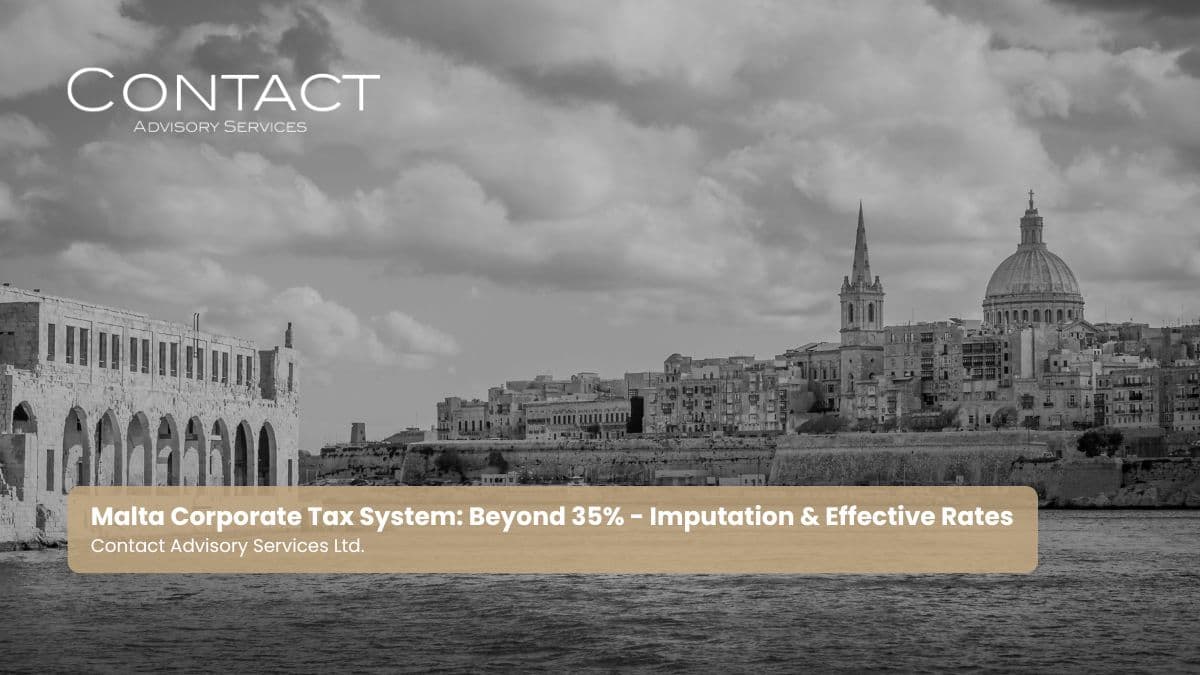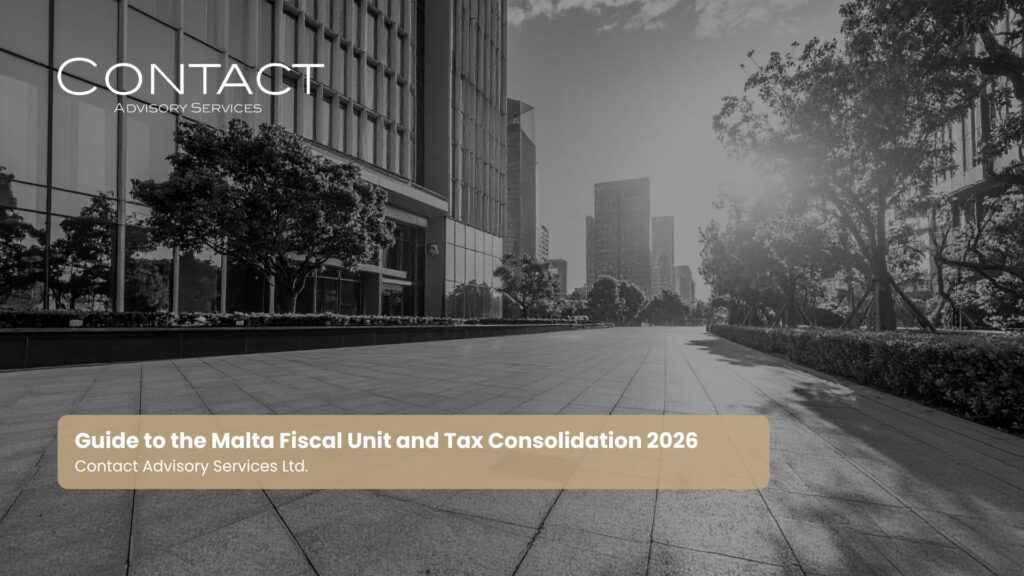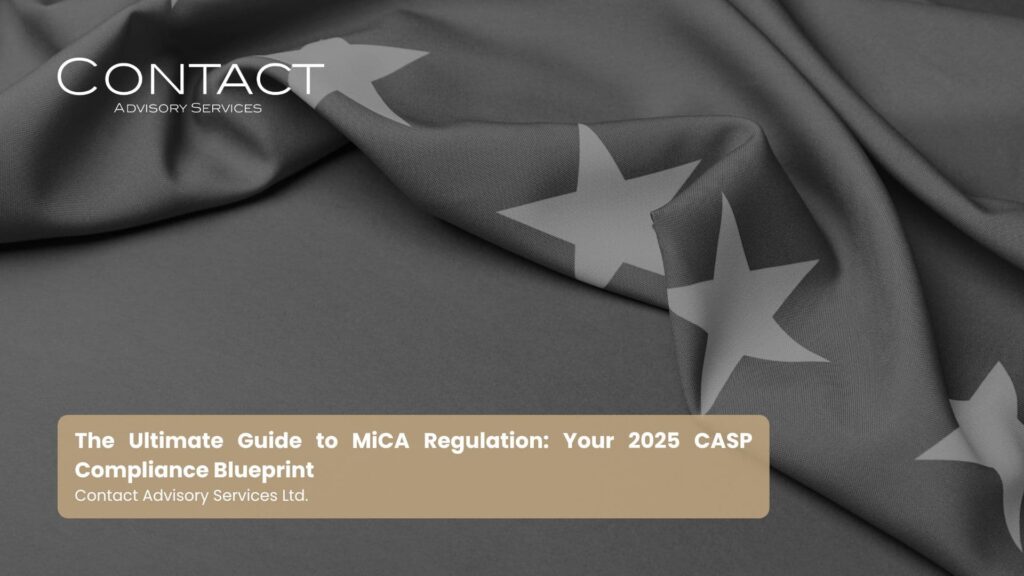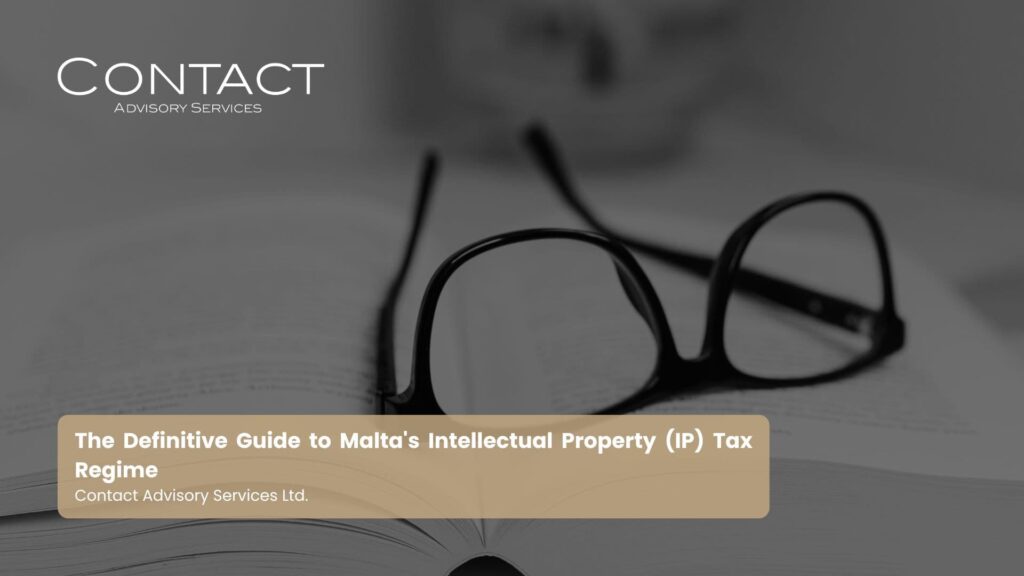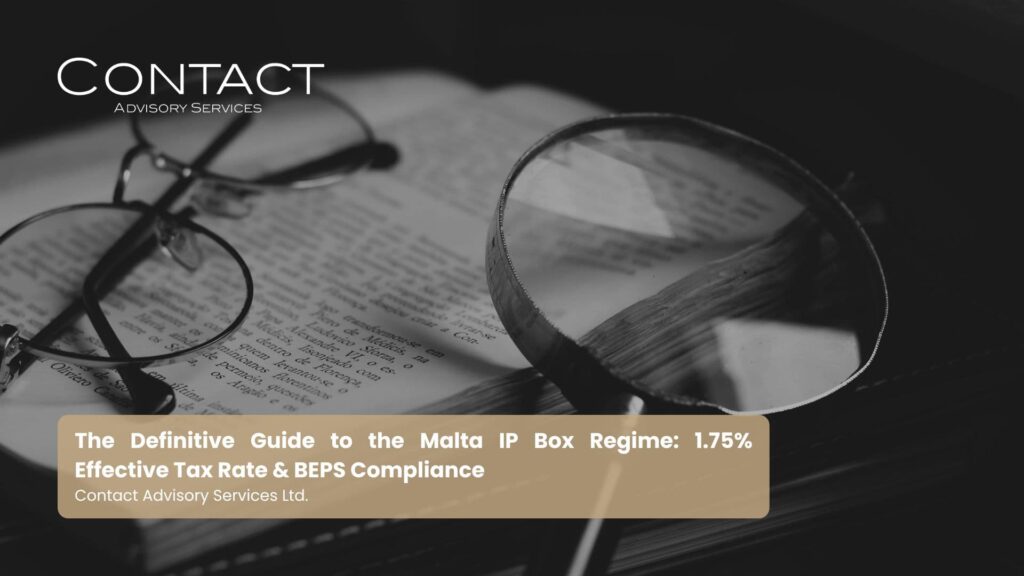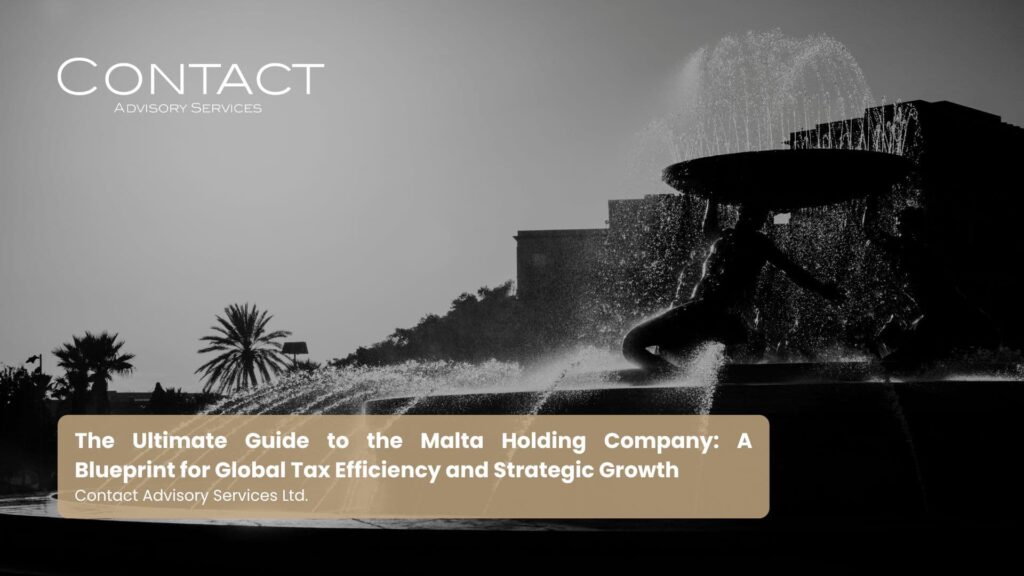Unlocking Tax Efficiency in Malta: Understanding the Corporate Tax System Beyond the 35% Headline Rate
Malta has firmly established itself as an attractive jurisdiction for international business and investment, drawing entrepreneurs and corporations worldwide. A significant part of this appeal lies in its unique and often misunderstood Malta corporate tax system. While the “headline” corporate income tax rate of 35% is frequently quoted, looking solely at this figure provides an incomplete picture. In reality, due to Malta’s full imputation system and a robust tax refund mechanism for shareholders, the effective corporate tax rate can be substantially lower, often making it one of the most competitive in the European Union.
For businesses considering Malta company formation, grasping how this system works – particularly the interplay between the tax paid by the company and the refunds available to its shareholders – is crucial for accurate financial planning and for appreciating the true tax implications of operating from the island. How does the imputation system prevent double taxation? What types of income qualify for refunds, and who is eligible? How can the effective tax rate be reduced to as low as 5%, or even 0% in certain scenarios?
As experienced corporate services consultants at Contact Advisory Services Ltd., we frequently guide clients through the nuances of Maltese taxation. This article aims to demystify the Malta corporate tax framework, looking beyond the standard 35% rate to explain the mechanics of the full imputation system, the various tax refunds available, and how these elements combine to create a highly efficient tax environment for qualifying companies and their shareholders.
The Starting Point: Malta’s 35% Corporate Income Tax Rate
Let’s begin with the baseline: companies resident and domiciled in Malta are subject to corporate income tax at a flat rate of 35% on their worldwide chargeable income. Chargeable income is essentially the company’s accounting profits adjusted for tax purposes (e.g., disallowing certain expenses, allowing specific tax deductions).
This 35% rate applies to the profits before they are distributed to shareholders as dividends. If the story ended here, Malta might not seem particularly advantageous from a tax perspective. However, this is where the full imputation system comes into play, fundamentally altering the landscape.
The Full Imputation System: Eliminating Economic Double Taxation
A key feature of Malta’s tax system is its full imputation system for company profits distributed as dividends. This system is designed to eliminate “economic double taxation” – where the same income is taxed once at the company level and then again at the shareholder level when dividends are received.
How it Works:
- Company Pays Tax: The Maltese company earns profits and pays corporate income tax at 35% on these profits.
- Dividend Distribution: When the company distributes these taxed profits as dividends to its shareholders, the dividend carries an “imputation credit” equal to the tax already paid by the company on those distributed profits.
- Shareholder’s Tax Position: When shareholders (Maltese resident or non-resident) receive this dividend, they include the gross dividend (i.e., the net dividend received plus the imputation credit) in their own taxable income. They are then entitled to claim a credit for the 35% tax already paid by the company (the imputation credit) against their own tax liability on that dividend income.
The Effect:
- For Maltese Resident Shareholders: If their personal income tax rate is lower than 35%, they may receive a tax refund for the difference. If their rate is 35%, the imputation credit fully offsets their tax liability on the dividend. If their rate is higher (which is rare for individual dividend income given tax brackets), they would pay the difference. The primary effect is that the profit is effectively only taxed once at the shareholder’s marginal rate, up to a maximum of 35%.
- For Non-Resident Shareholders: This is where it gets particularly interesting, as the imputation system, combined with the tax refund mechanism (discussed next), forms the basis for significant tax efficiencies.
The full imputation system ensures that company profits distributed as dividends are not taxed twice in Malta. This is a foundational principle of the Maltese tax benefits for companies.
The Game Changer: Tax Refunds for Shareholders
While the imputation system itself prevents double taxation within Malta, the tax refund system is what makes Malta exceptionally attractive for international businesses and investors. Upon receipt of a dividend from a Maltese company that has paid tax in Malta, eligible shareholders can claim a refund of a portion (or all) of the Malta tax paid by the company on the profits from which the dividend was distributed.
Key Features of the Tax Refund System:
- Who is Eligible? Generally, shareholders (both corporate and individual, resident and non-resident) can claim refunds. However, the system is particularly beneficial for non-resident shareholders or Maltese companies with non-resident UBOs.
- What Triggers the Refund? The distribution of a dividend out of profits on which the Maltese company has paid tax.
- How is it Claimed? The shareholder submits a specific tax refund claim form to the Maltese tax authorities after receiving the dividend. Refunds are typically processed efficiently (often within a few weeks, though official timelines can vary).
The Standard Types of Refunds:
The amount of the tax refund depends on the nature of the profits being distributed and whether the company has claimed any double taxation relief. The most common refunds are:
- 6/7ths Refund: This is the most common and widely applicable refund. Where the dividend is paid out of profits derived from trading activities (e.g., active business operations, manufacturing, services), the shareholder is entitled to a refund of 6/7ths of the Malta tax paid by the company.
- Calculation Example:
- Company Profit: €100
- Malta Tax Paid @ 35%: €35
- Profit Distributed as Dividend: €65
- Shareholder claims 6/7ths refund of €35: (€35 x 6/7) = €30
- Net Tax Leakage in Malta: €35 (tax paid) – €30 (refund) = €5
- Effective Tax Rate in Malta: 5% (€5 / €100)
- This effectively reduces the Malta corporate tax burden on trading profits distributed to eligible shareholders to just 5%. This is a cornerstone of Malta’s appeal when discussing Malta company taxation.
- Calculation Example:
- 5/7ths Refund: This refund applies when the dividend is paid out of profits derived from passive interest or royalties.
- The shareholder is entitled to a refund of 5/7ths of the Malta tax paid by the company.
- Effective Tax Rate in Malta: This results in a net tax leakage of 10% on such income.
- 2/3rds Refund: This refund applies where the dividend is paid out of profits allocated to the Foreign Income Account and in respect of which the Maltese company has claimed double taxation relief (other than Flat Rate Foreign Tax Credit). The refund is 2/3rds of the Malta tax paid. The effective rate here can vary depending on the double tax relief claimed.
- 100% Refund (Full Refund): This applies in specific circumstances, most notably when dividends are distributed by a Maltese holding company out of profits derived from a “participating holding” or the disposal of such a holding (subject to certain conditions and anti-abuse provisions).
- A “participating holding” essentially means the Maltese company holds equity shares in another company (Maltese or foreign) that meet certain criteria (e.g., holding at least 5% of equity, or an investment of at least €1,164,000 held for a qualifying period, among other conditions).
- If these conditions are met, the dividend income or capital gains from the participating holding can effectively be tax-exempt in Malta at the shareholder level after the refund. This makes Malta a highly attractive location for setting up holding companies.
The Result: Low Effective Tax Rates
The combination of the 35% headline rate, the full imputation system, and the shareholder tax refund mehanism means that for qualifying income and eligible shareholders, the effective Malta corporate tax rate can be significantly reduced:
- 5% on active trading income (via 6/7ths refund).
- 10% on passive interest and royalties (via 5/7ths refund).
- 0% on qualifying participation holding income/gains (via 100% refund).
It is this effective rate that makes Malta’s tax system for companies so competitive within the EU and globally. This is a crucial consideration when planning your Malta company setup.
While highly attractive, the system has important conditions and nuances:
Important Considerations & Nuances
- Shareholder Eligibility: While broadly available, the precise benefits can depend on the shareholder’s residency status and their home country’s tax treatment of Maltese dividends and refunds.
- Nature of Income: The type of refund (and thus the effective rate) depends directly on the source and nature of the company’s profits (trading vs. passive vs. participating holding). Proper allocation of profits to different tax accounts (Maltese Taxed Account, Foreign Income Account, Immovable Property Account, Final Tax Account, Untaxed Account) by the company is essential.
- Timing of Refunds: Refunds are claimed after the company has paid the 35% tax and distributed a dividend. This means there’s a cash flow aspect to consider – tax is paid first, then refunded.
- Substance Requirements: In line with global initiatives (like BEPS), demonstrating genuine economic substance in Malta for the company’s activities is increasingly important, especially for benefiting from tax advantages. This means having adequate premises, employees, and decision-making occurring in Malta relevant to the income being generated.
- Anti-Abuse Provisions: Malta, like all reputable jurisdictions, has anti-abuse provisions to prevent misuse of its tax system. Structures must have genuine commercial rationale.
- Professional Advice is Key: The Maltese tax system, while beneficial, is complex. Obtaining tailored advice from qualified tax professionals in Malta is absolutely essential to ensure your structure is compliant, efficient, and that you correctly understand the implications for your specific business and shareholders.
As corporate service providers at Contact Advisory Services Ltd., we work closely with trusted tax advisors to ensure our clients who are incorporating companies in Malta receive accurate and comprehensive tax planning advice from the outset. For more information on the general process of setting up your company, you can visit our Malta company formation page.CANVA
Other Aspects of Malta’s Tax System
Beyond the imputation and refund system, other features contribute to Malta’s appeal:
- No Withholding Tax on Outbound Dividends: Malta generally does not levy withholding tax on dividends paid to non-resident shareholders, irrespective of whether a tax treaty exists.
- No Withholding Tax on Outbound Interest & Royalties (Generally): Subject to certain conditions, interest and royalty payments made to non-residents are also typically exempt from Maltese withholding tax.
- Extensive Double Taxation Treaty Network: Malta has over 70 DTTs, which help prevent income from being taxed in two countries and can reduce withholding taxes on payments into Malta from treaty partners.
- Participation Exemption: Besides the 100% refund for holding companies, Malta also offers a direct participation exemption at the company level for dividends and capital gains from qualifying participating holdings. This means the Maltese company itself may not even pay the initial 35% tax on such income, simplifying matters further (though conditions apply).
- Notional Interest Deduction (NID): Companies can claim a deduction for “notional” interest on their risk capital, potentially reducing their taxable base.
Conclusion: A Strategically Advantageous Corporate Tax Environment
Malta’s corporate tax system is a sophisticated framework designed to attract genuine international business while remaining compliant with EU and global standards. The 35% headline rate is merely the starting point. The real advantage lies in the full imputation system and the generous tax refund mechanism available to shareholders, which can dramatically reduce the effective Maltese tax burden on distributed profits to as low as 5% for trading income and even 0% for qualifying holding activities.
However, navigating this system effectively requires a clear understanding of its mechanics, the eligibility criteria for refunds, the importance of correctly allocating profits, and the increasing emphasis on economic substance. It is not a “one-size-fits-all” solution, and its benefits are best realised through careful planning and expert advice.
For businesses considering Malta as a jurisdiction for their operations or investments, the potential for significant tax efficiency, when structured correctly, is a compelling reason to explore the island’s offerings.
Ready to understand how Malta’s corporate tax system could apply to your specific business and explore the benefits of Malta company formation? The team at Contact Advisory Services Ltd., in collaboration with expert tax advisors, can provide the clarity you need.Get in touch for a comprehensive consultation:
Email: info@contact.com.mt

